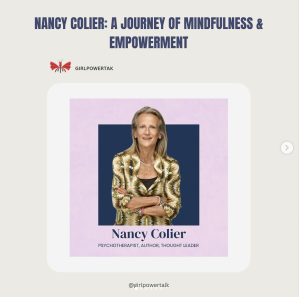As a psychotherapist, I’m going to let you in on a little secret: Most people find modern life to be utterly overwhelming. The way we’ve designed our lives in this society doesn’t work, not really, and doesn’t promote well-being. We have too much on our plates. The amount of responsibility we carry and what we have to manage on a daily basis often feels unmanageable. Many of us have children, full-time jobs, relationships, aging parents or other relatives, and 1,000 other responsibilities. (So far this week, I’ve received 13 emails from one of my children’s schools, about things I need to take care of just for her life to run smoothly.) And that’s just one small person out of the countless other people, places, and things for which I am responsible.
In addition, many of us live without close family nearby, without people we can rely on to help and relieve some of the burden (other than the people we pay). It can feel like we’re trapped inside a tsunami of needs, all coming at us with no end in sight. Spending time with friends, downtime, relaxation, rest, and dare I say it, time to just be…all feel like luxuries. The result is emotional burnout, chronic stress, physical conditions, depression, fatigue, hopelessness, resentment, anger, frustration, depression, and apathy, to name a few.
Unless you want to drop out of society and live off the grid, the reality is that there are too many demands, needs, and responsibilities to take care of in a full, modern life. Still, there may be ways that you are adding to your own burden and stress—overgiving when it’s not necessary, giving without discernment, and depleting yourself without questioning it.
It’s important to remember that we give so much largely because we care about and love the people we’re giving to, and we want them to be well. We give because what we’re taking care of matters to us. And yet, the problem is that we give past the point that we are OK; we give at our own expense, and often until we have no resources left at all, and are completely burnt out.
We also don’t acknowledge how much we’re doing and how hard the demands of life can be. There exists a belief that we should be able to navigate all this, should be able to live in this crazy way, and should be able to do more than we can do. The fact that it’s too much, unmanageable, and hard is not allowed into the picture. We don’t give ourselves that grace.
If you feel like you overgive, it’s important to ask yourself what’s driving you to give more than you can or want to. What beliefs and fears prevent you from being more discerning about how much you give?
While the overwhelming demands of modern life and caregiving fall on everyone, they are frequently experienced differently by men and women. Women, in particular, are often conditioned to be caregivers. From the time we are little girls, our value and likability are linked to how well we take care of others, and how willing we are to put other people’s needs above our own. The more selfless, the more worthy, respected, loved, and admired. For women, it can be a badge of honor to be able to meet everyone’s needs and never say no.
Simultaneously, our society judges women who cannot be superhuman caregivers. The “selfish” label is quickly launched at women who are unable to jump through the hoops, or even more boldly, who choose not to. There is a myth that, as women, we should get our needs met and feel nourished by meeting other people’s needs. Giving to others should be enough for us to feel good. And yet, this myth is just that: a myth.
Regardless of gender, however, if you identify with being an overgiver, and feel consistently stretched beyond your limits, you might ask yourself (with curiosity, not judgment): What (really) keeps me on this treadmill of giving to the point where I end up feeling depleted and frazzled? Is all of this giving genuinely necessary or do I have options that I’m not seeing or allowing myself to see?
The core belief may be that you simply don’t deserve to not give, you’re not worthy, and don’t have the right to say “no.” As long as you’re still breathing, it’s your job to be there for everyone who needs help. Other people’s needs matter more than yours do. If you grew up in a dysfunctional family in which you had to earn your love or value by doing for others, giving may be how you earn your worthiness and feel like enough. Or, perhaps you envision taking care of your own needs something that happens at the expense of others, as if you’re choosing your needs “over” or “instead” of other people’s needs (which would be unthinkable)? Are you not worthy of that privilege?
Perhaps you give so much because it feels like just what you should do, as a good and caring person, and that you owe the people in your life for everything they do and have done for you. Or, you just owe them for some unknowable reason like putting up with you.
In addition, you may overgive because you can’t bear the idea of disappointing others or letting them down—not being who they want (and count on you) to be. You need to be that person—the one who is always there for them. The compulsion to give comes from the discomfort you feel at the mere idea of not being what other people need you to be. Maybe it was a chaotic home environment, and in order to feel or stay safe, you had to meet the needs of caregivers instead of the adults meeting your needs. There also may exist a fear of being judged as selfish and uncaring, if you were to start giving less.
You probably also enjoy the perception others have of you’re a super-giver. You’re seen as strong, reliable, generous, invincible, and many other good things. People say, “I don’t know how she does it,” for which you’re admired, respected, and loved, and even more so if you can do it all without needing anything for yourself. Consequently, you build a sense of self, and an identity as someone who can do it all, which feels good. There are real cash and prizes that come with being an overgiver, which understandably you don’t want to give up.
At the same time, you may also harbor a belief that if you don’t take care of it, it won’t get done or done right. Saying no or not now feels too risky and scary as far as the mess or chaos it will leave in its wake. It is the belief that you cannot rely on anyone else to take care of things properly.
There are many reasons to give past our limits. But when we stretch ourselves too thin, and deplete ourselves at the deepest level, there are profound consequences to our own well-being.
In Part 2 of this series, I’ll address the costs of being an overgiver. And most importantly, I’ll offer ways to break free from this habit of giving too much and create new ways of being in the world that take care of you in addition to everyone else.


